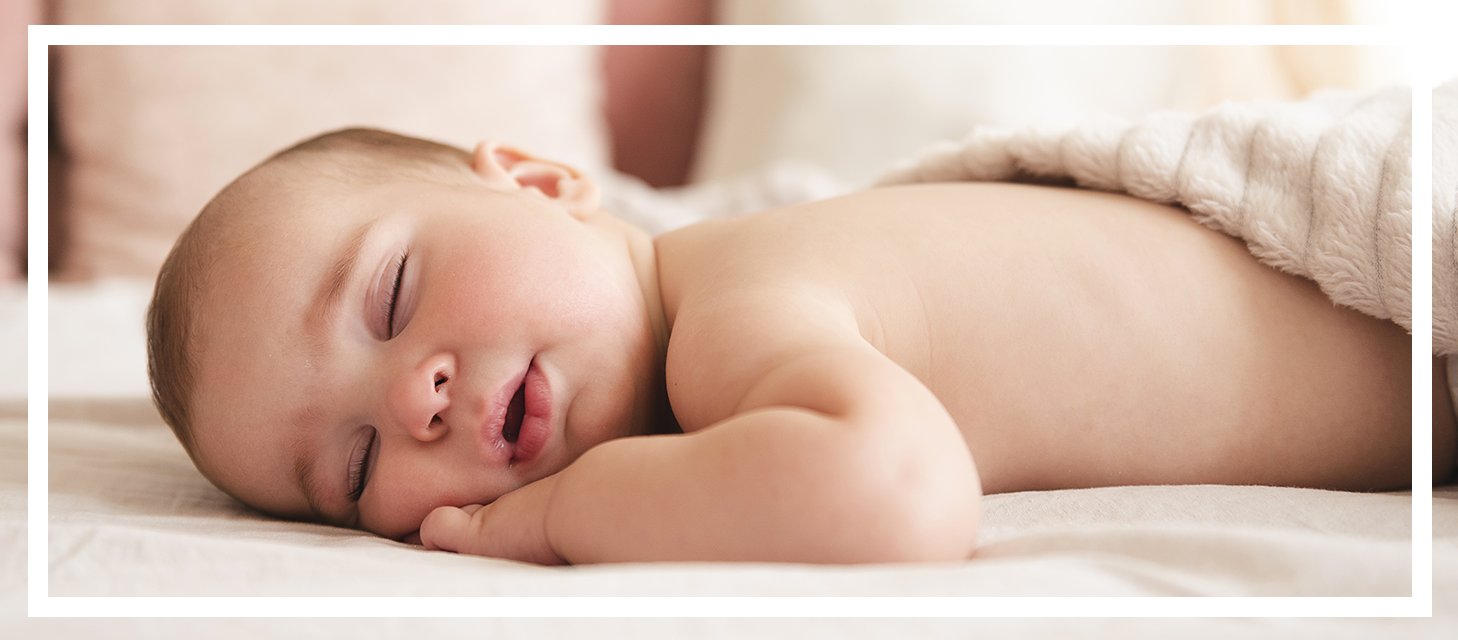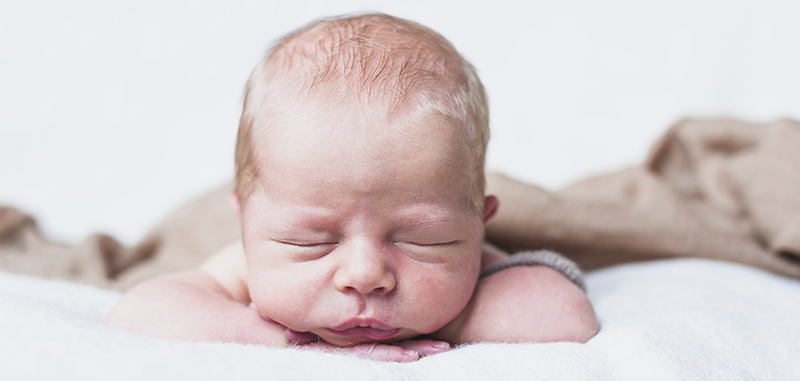Understand the baby's sleep rhythms!

One of the biggest concerns for parents is — and always will be — their baby's sleep. And that’s completely understandable!
Newborns sleep an average of up to 16 hours a day, and some may sleep even more.
Every baby has a unique sleep personality, shaped by their own internal clock. Over time, you’ll begin to understand your baby’s sleep rhythm and recognize their individual needs.
To guide you through this journey, we’ll walk you through the different baby sleep patterns by age, from birth to their first birthday!
Baby sleep patterns from 0 to 3 months
From birth, it’s important to understand that a newborn sleeps based on their own internal needs. In fact, your baby doesn’t yet know the difference between day and night!
At this stage, they may sleep for an average of 16 to 17 hours a day, and sometimes up to 20 hours to meet their biological clock. This sleep rhythm is called ultradian, meaning your baby wakes and sleeps throughout the day, not according to the usual day-night cycle.
Most often, they’ll wake up to feed, though some babies wake more frequently than others. Your baby’s unique sleep personality can start showing as early as the first few weeks! After the first month, your little one may stay awake for up to 2 to 3 hours at a time.
During this stage, baby sleep patterns are generally divided into two distinct sleep cycles:

Baby sleep patterns from 3 to 6 months
Around the 3-month mark, your baby will start sleeping through the night. By now, their body has built up enough reserves to allow them to sleep for 5 to 6 hours at a stretch.
But don’t worry if your baby still wakes up hungry during the night. They know what they need and will progress at their own pace! Gradually, the total number of sleep hours per day begins to decrease — most babies at this stage sleep between 14 and 16 hours a day.
This is also when your baby’s internal body clock starts adjusting to the day-night cycle. Sleep becomes more predictable, and your baby begins to self-regulate, both biologically and emotionally.
Around 5 to 6 months, you can even consider introducing a bedtime routine. That said, continue to let your baby nap whenever they seem tired — follow their cues and needs above all!
Baby sleep patterns from 6 to 12 months
After 6 months, babies need slightly less sleep and may be able to sleep 10 to 12 hours through the night.
They usually take three naps a day: one in the morning, one early afternoon, and another in the late afternoon. That said, it’s still possible for them to wake briefly during the night between sleep cycles.
This is also the age when your baby starts learning to fall back asleep on their own. But if the crying persists, don’t hesitate to go in and comfort them — your presence can help them settle back into a peaceful sleep.
Around 8 months, it’s completely normal to experience a sleep regression. Your baby may start waking more often — this is known as separation anxiety. It’s a natural and important developmental stage that helps them grow emotionally.
When your baby wakes up and realizes you’re not there, they may need a gentle touch, a cuddle, or simply the sound of your voice to feel secure and fall back asleep.
Discover REMI
THE SMART BABY MONITOR 😊
REMI and its app bring together everything you need to manage your baby’s sleep!
Its mission? Helping families sleep better — from birth up to age 10.
I bought REMI for my 4-year-old son who didn’t want to sleep alone anymore after his little sister was born. Thanks to the remote wake-up system and bedtime stories I can play from a distance, the issue is completely resolved! I 100% recommend this purchase!






 White noise for baby : a scientific research !
White noise for baby : a scientific research !
 What are the positive effects of napping on memory?
What are the positive effects of napping on memory?
 When do babies sleep through the night ? Tips and tricks !
When do babies sleep through the night ? Tips and tricks !
 Night terrors in babies: don't panic!
Night terrors in babies: don't panic!
 1 Month Old Baby Sleep : Common Questions
1 Month Old Baby Sleep : Common Questions